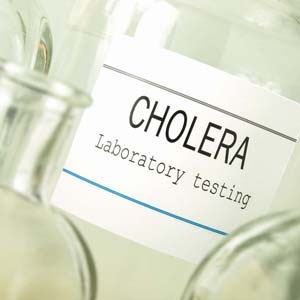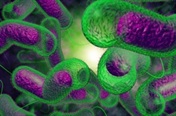
Uncooked shellfish, milk, cooked rice, lentils, potatoes, beans, eggs, chicken and coconut milk all can become sources of the disease, but potable water remains the most important source.
On the whole, cholera is a disease that preys on the disadvantaged because when piped water and sanitation is available, people usually do not get infected. In developed countries such as the USA, cholera has been very rare for the last 100 years. According to statistics, 0 – 5 cases are reported in the USA each year.
Developing countries don't escape so lightly, however. Epidemics usually occur in areas where there's poor sanitation, over-crowding, war or famine. But cholera can also spread after a natural disaster such as a flood or earthquake when fresh water supplies are disrupted.
Endemic areas include India, Asia, Africa, the Mediterranean, and more recently, South and Central America and Mexico.
"Vibrio cholerae is a human pathogen," continues Professor Sturm, "and is dependent on people for survival. Epidemics seem to follow a cyclical pattern. Periods of rain are essential to a resurgence of the disease. When there is no outbreak, the bacteria are carried to the sea where in the river mouths the concentration of salt renders them dormant.
After heavy rains, however, when you have large quantities of fresh water at the mouth of the river, this upsets the levels of salinity and the organism begin to multiply and move upstream. If communities then drink the water, they can begin the process of re-infection once more. If they live in an impoverished community, they're unlikely to have proper sanitation and may use the local river for bathing and washing.
The bacteria then infects the community's water supply and so more and more people become infected, until there's nobody else for the bacteria to infect or the community has built up immunity.
The previous South African epidemic occurred in 1984 and predominantly affected people living in KwaZulu-Natal.




 Publications
Publications
 Partners
Partners
















